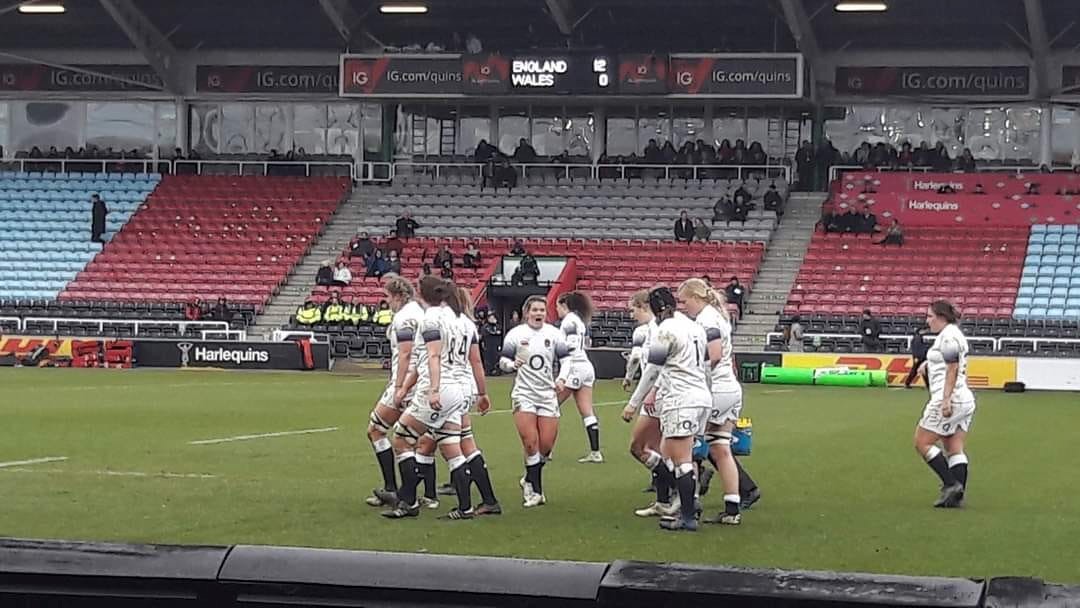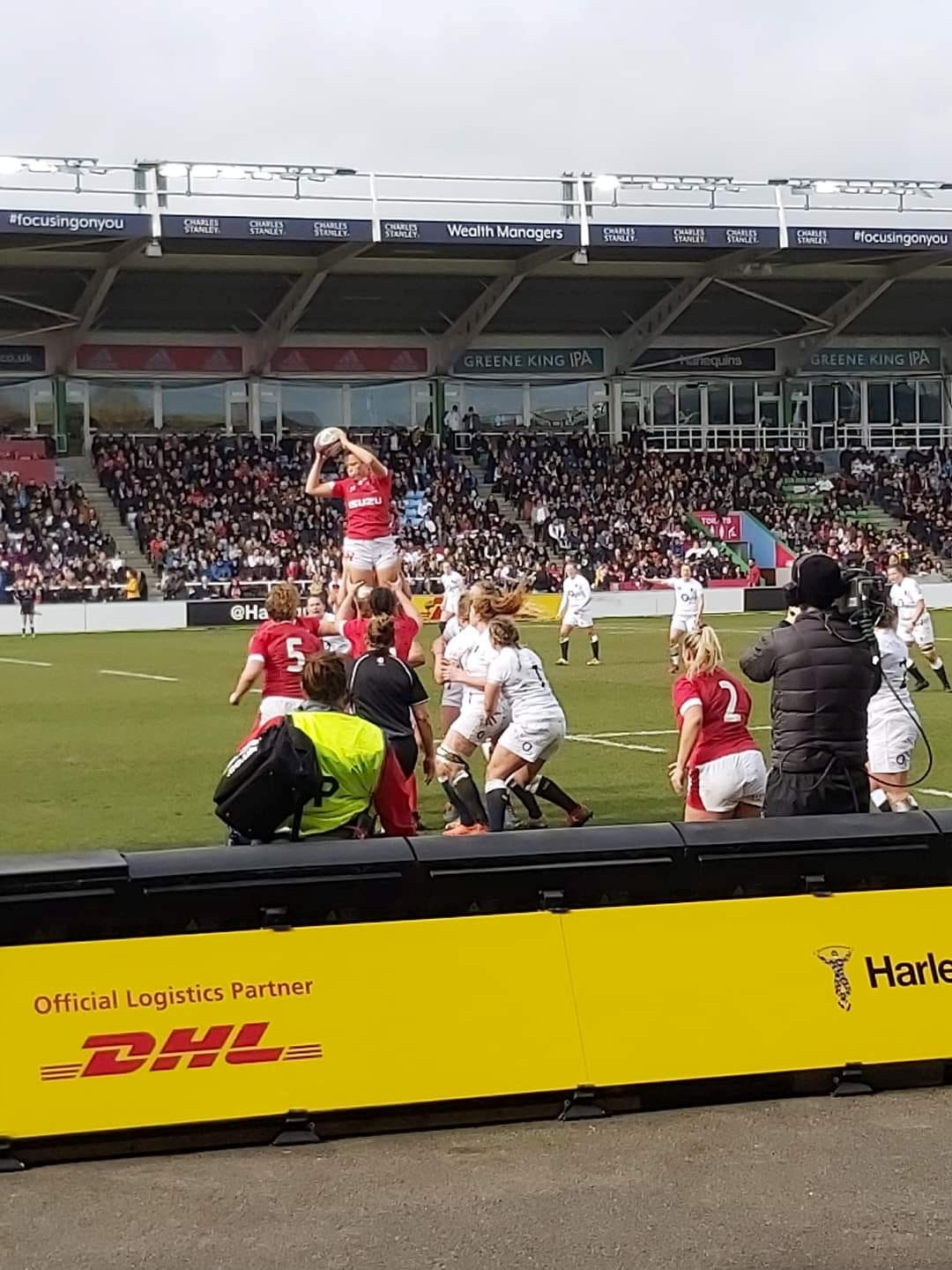
James Tanton, Men for Inclusion Member - It’s sport Jane, but not as we know it…
katie.robertson / 05 Feb 2024
Men for Inclusion is delighted to be showcasing member, James Tanton's thought leadership articles regularly on our blog. James was introduced to Men for Inclusion via good friend and E2W member, Karen - the wonders of connection and community!
I was introduced to E2W and the men for inclusion network by a colleague of mine at Allfunds.
My motivation to join was to share my experiences of life as an older millennial and raising a young family in an ever changing world. My son and daughter will be growing up surrounded by more inclusivity than either myself or my parents ever were and hopefully we can learn together.
I am passionate about history and finding the stories of anyone in history who has put their head above the parapet and challenged society norms. By sharing the stories of those who have broken the, so called, glass ceilings, we can educate future generations in education and their workplaces.
Last year, I wrote about the link between International Women's Day and the Russian Revolution. This year, my take on IWD is going to be from a different, more contemporary direction. Don't worry, some history will still be involved.
To continue the revolution theme, I believe we are currently living through a revolution of sorts, that is, surrounding women's sport. For too many years, women's sport was in effect repressed. Think about it, growing up, what Women's sport did you see on TV? The Olympics? Women take part at the same time as the men albeit sometimes over shorter distances or different disciplines altogether. Tennis? See olympics. Skiing? See previous.
In particular, Women's team sports were completely neglected. When did you first see the women's football or rugby world cups on prime time terrestrial TV? For most of you the answer will be never or the two tournaments which took place in 2022 - England won the European football championship in the dearth of extra time and came agonisingly close to winning the rugby world cup. Both these tournaments saw record crowds in the stadiums and viewing figures. Indeed, the finals of both tournaments sold out. Wembley (over 87000 spectators) and Auckland stadium (over 42000 spectators). To see how much of an impact this is, we need to look back at the previous tournament figures. (Years are slightly out over the usual tournament cycle due to covid).
The 2017 Euros final was held in front of 28000 spectators in The Netherlands
The 2017 Rugby world cup final was held in front of 17,000 spectators in Belfast.
Indeed, my own anecdotal evidence can back this up. The below photos are taken two years apart in 2018 and 2020. Both are a Six Nations fixture between England and Wales. Both are taken from the same stand at the Twickenham Stoop, home to Harlequins rugby club. Notice the stand opposite and how empty / full it is. In two years, interest in the sport has increased.

But James, I hear none of you cry, the previous tournaments were held in smaller venues.
Well, quite, my dear reader, the question therefore is what has caused the change in spectator numbers?
Arguably this can be traced to the #metoo movement and women wanting their voices heard. Not only their voices, but their interests and hobbies (most Women's sport remains amateur - more on that shortly).
It hasn't always been that way. This Article (https://www.fourfourtwo.com/features/womens-football-banned-england-50-years-fa-world-cup-history) details the story of Women's football, from its mass pre war popularity, to the FA becoming jealous and introducing, in effect, a ban of women playing football in the UK. A ban which would last for 50 years.
Where was the interest to watch Women's sport if the governing body of the world’s biggest sport has excluded half the population. Where are the role models for young girls growing up? Where is the inspiration to take part in PE or at the local sports club?
Broadcasters looked at themselves and their schedules and realised half the population was being under represented or not represented at all. Sponsor companies were also being questioned by their customers. Change, or revolution, was in the air.
The Women's super league and rugby's premier 15 competitions were revamped, Manchester United created a women's team in 2018 after huge pressure. The 100 cricket tournament introduced double headers with the men and women's teams playing on the same day, in the same grounds with some women's matches taking the prime TV slot. The reason why they hadn't previously was financial. Indeed nearly all the professional club and international women's teams are running at a loss. Even the kits being played in were designed for men at men's sizes. Only relatively recently has kit (including non-white shorts) started to be specifically developed and designed for women. Finally, there is notice that women are shaped differently and have different needs to men!
This will all improve as sponsorship, contracts and ticket prices all increase to match the rising demand. Want to see the England Red Roses play? That will cost you £30 this year, a few years ago it was a fiver. Some clubs will still allow free entry. But as interest grows so do ticket prices and therefore money to the players. This increases competition and skill level and therefore wins, which in turn, generates interest and role models and so the spiral keeps growing.
There is obviously still a long way to go, for example, motorsport needs to take a long hard look at itself. Women need to progress to the main club and national stadiums regularly, there need to be more fully professional teams with competitive salaries, more exposure on TV. More grassroots participation.
On that note, use this IWD to find your local club and go and watch a match or find out how to take part. The Women's six nations kicks off later this month and tickets are still for sale, over 30,000 have been sold for England v France at Twickenham already. Watch a match on TV. Follow a team. Encourage your daughters, nieces, grand-daughters sisters mums, aunties, to get involved.
Keep the sporting revolution going! Your local club needs you now more than ever! Don't have a team or club? Find out how to create one. In 2016, Royston Rugby Club founded a Women's team and went from strength to strength, winning two promotions.
On that note, Happy International Women's day and keep on fighting the fight.
Please feel welcome to get in touch with James and share your thoughts with him. Sign up to Substack here.
Back to blog




 Women in Financial Services
Women in Financial Services